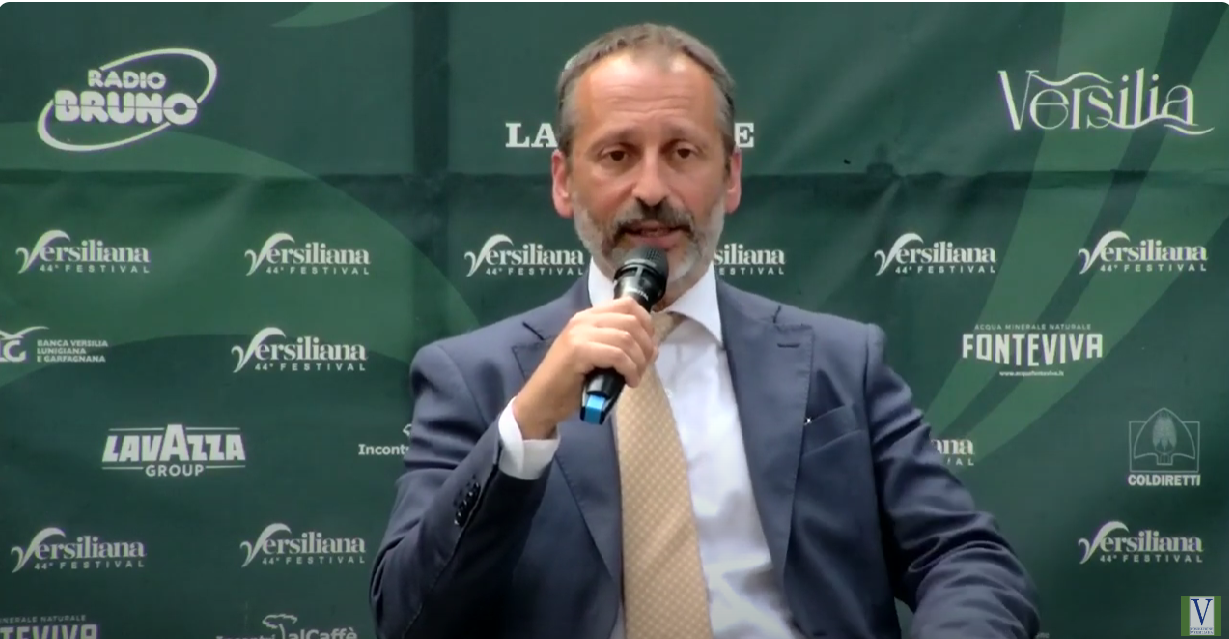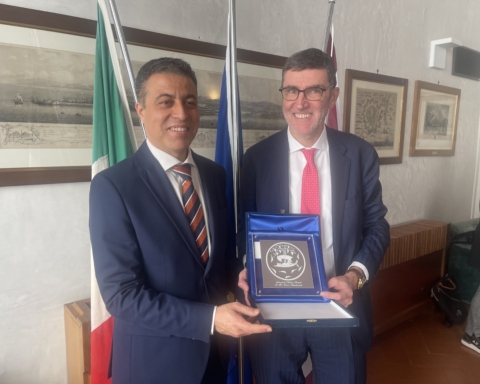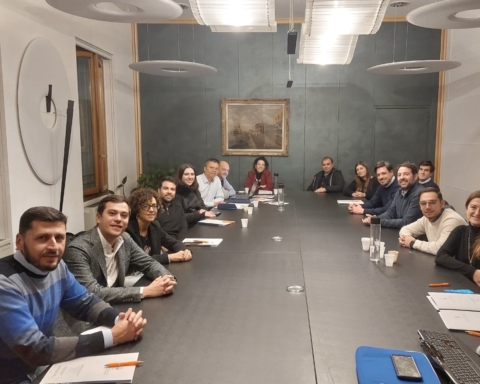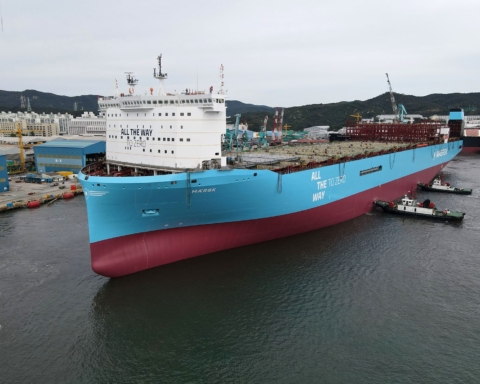“Artificial Intelligence (AI) is already part of our vision and will be increasingly more so over the next few years.” Matteo Paroli is convinced of this. At the Caffè della Versiliana, at a discussion session with Deputy Minister Edoardo Rixi, the Managing Director of the North Tyrrhenian Port Network Authority remarked how, in the digital era, ports are becoming innovation centres, capable of making logistics more efficient thanks to adopting innovative solutions such as IOT, 5G, or blockchain.
‘Ports have been using AI for years,’ admits the MD of the Livorno and Piombino Port Network. “In Europe, the technological benchmark is Rotterdam, but I could also mention the American port of Los Angeles. It is by no coincidence that these two ports specialize in transporting containerized goods, a highly standardized, linear type of traffic that is well-suited to AI software built around calculations, based on previous performance data. Figuring out how long a container should be in the yard, optimal handling, saving time and energy is particularly convenient.”
Mr. Paroli pointed out how other AI systems, not applied to transporting goods but passengers, are also gaining ground. “In this field, Singapore Port Authority,’ he admitted, “is one of the most advanced.”
The North Tyrrhenian PNA’s managing director explained that, in the Asian country, a system capable of analyzing body movements and facial expressions of people being checked has long been used to control tourists and passengers coming into the country: “AI does not evaluate what the tourist says in response to a question asked by a security officer, but tries to detect his attitude to understand whether he/she is telling the truth or not.”
Innovative solutions are also being developed in Italian ports, especially in terms of data aggregation: “Livorno PNA,” says Paroli, ‘is excelling in this field in Italy.” “In fact, we have developed a software, called MoNICA, a powerful collector of data gathered from information from operators and the sensors we use. This system is able to monitor, in real time, with total precision, ships entering and leaving the port,
Another software developed years ago, and now shared with two other Port Network Authorities (Sardinia Port Network Authority, and the Central Tyrrhenian PNA), the Tuscan Port Community System (TPCS), ‘now allows us to clear goods being unloaded in our ports very quickly, as it is able to carry out a series of fully autonomous checks that previously had to be carried out manually.”
With this PNA system, the average time for picking up a container from the port has been reduced from 40 minutes to the current 2 minutes. In other words: “38 minutes less per container.”
It is not science fiction: ‘AI is the future that will enable our ports to become increasingly competitive in terms of low impact cargo handling.”
Translation by Giles Foster




